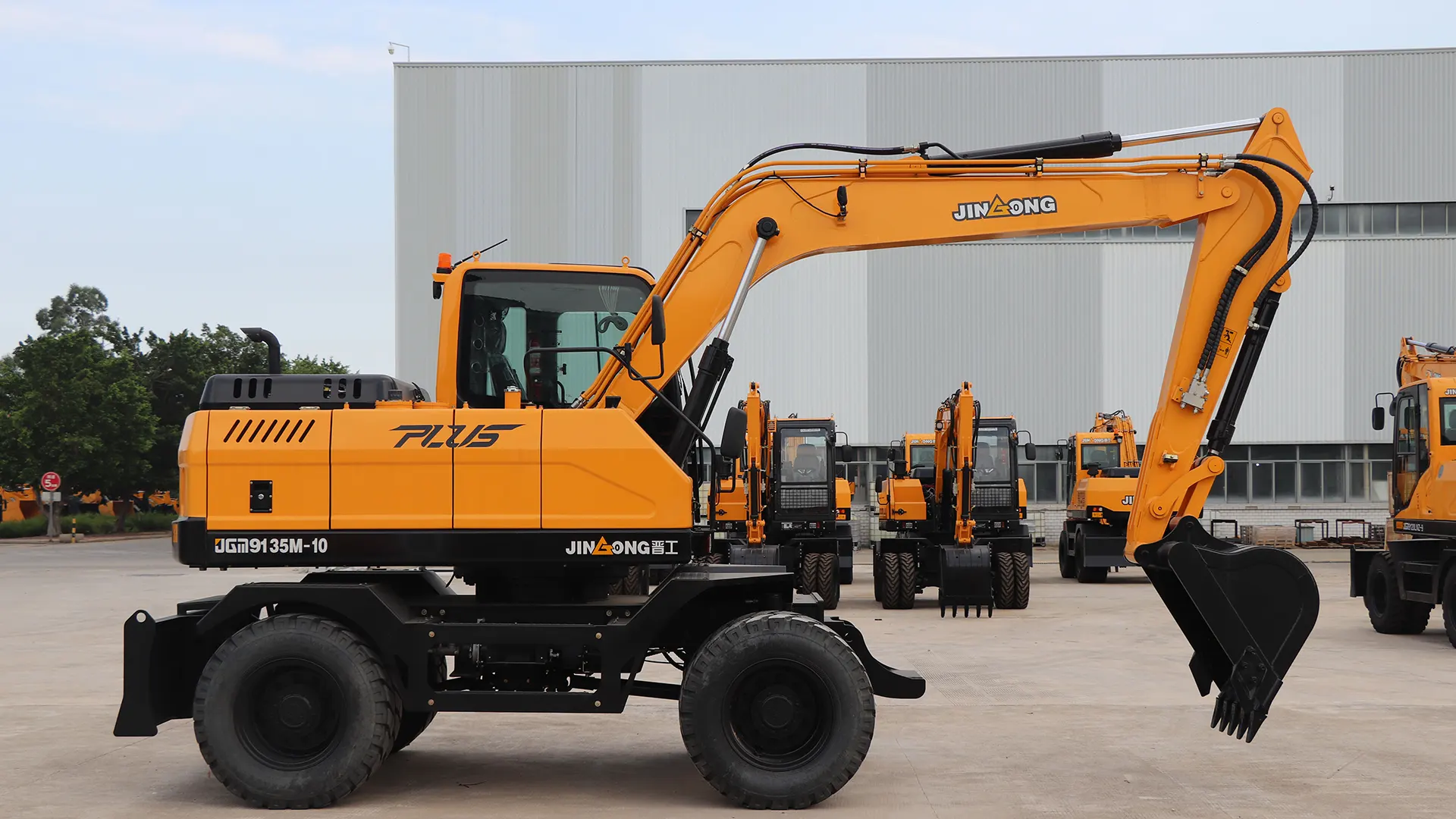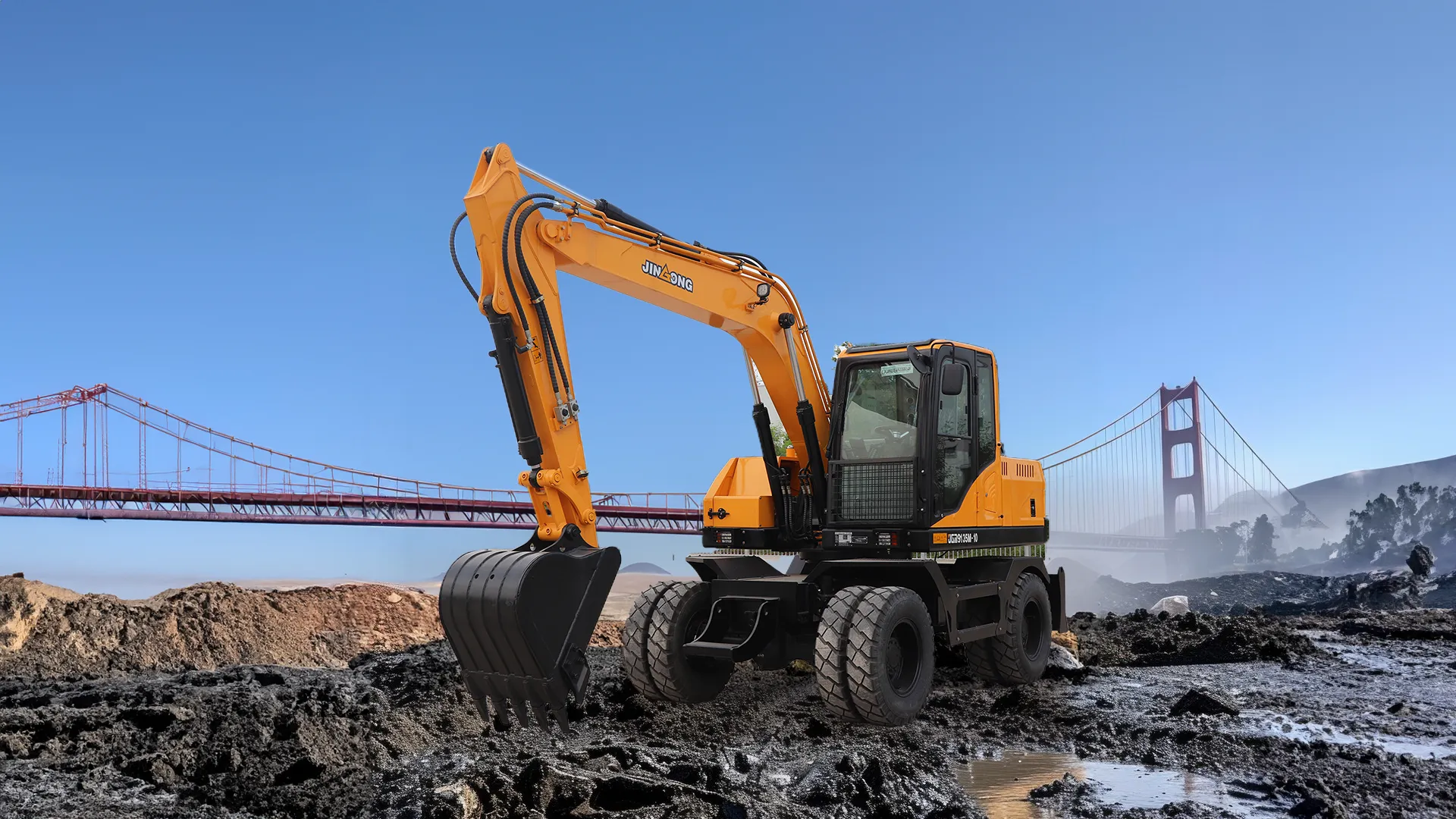Choosing the Perfect Electric Mini Excavator for Your Job Site: A Comprehensive Guide
Aug 28,2025

Choosing the Perfect Electric Mini Excavator for Your Job Site: A Comprehensive Guide
Table of Contents
- Understanding Electric Mini Excavators
- Benefits of Electric Mini Excavators
- Key Features to Look for in Electric Mini Excavators
- Assessing Your Job Site Requirements
- Comparing Electric Mini Excavators: Size and Performance
- Cost Considerations: Budgeting for Your Electric Mini Excavator
- Maintenance and Care for Electric Mini Excavators
- Frequently Asked Questions (FAQs)
- Conclusion
Understanding Electric Mini Excavators
Electric mini excavators have emerged as a game-changer in the construction and landscaping industries. These compact machines are designed for efficiency and versatility, offering an eco-friendly alternative to their diesel counterparts. Their electric power source reduces emissions, making them suitable for indoor and urban work sites where noise and air pollution regulations are stringent.
Benefits of Electric Mini Excavators
Choosing electric mini excavators offers numerous advantages:
1. Environmental Sustainability
Electric excavators operate without harmful emissions, helping to lower your project's carbon footprint. This aspect is increasingly vital in today's environmentally conscious market.
2. Noise Reduction
Electric models are significantly quieter than diesel machines, making them ideal for operation in residential areas or sensitive environments where noise pollution is a concern.
3. Lower Operating Costs
Electric excavators typically have lower energy costs compared to diesel fuel. Additionally, they require less maintenance, as electric motors have fewer moving parts than internal combustion engines.
4. Enhanced Maneuverability
Due to their compact size, electric mini excavators can navigate tight spaces effectively, making them perfect for landscaping, utility work, and small-scale construction projects.
Key Features to Look for in Electric Mini Excavators
When selecting an electric mini excavator, consider these essential features:
1. Battery Capacity and Runtime
Evaluate the battery capacity, as it directly impacts the machine's runtime. A higher capacity allows for longer operation without needing a recharge, which is crucial for productivity on the job site.
2. Power Output
Check the machine’s power output, usually measured in horsepower or kilowatts. Ensure it meets the demands of your specific applications, whether digging, lifting, or grading.
3. Operating Weight and Size
The operating weight affects stability and performance. Assess the size, as it should match the job site requirements without compromising maneuverability.
4. Attachments Compatibility
Ensure the electric mini excavator can accommodate various attachments, such as buckets, augers, and breakers, to enhance versatility and efficiency.
5. Controls and Ease of Use
Look for intuitive controls that enhance user experience. Ergonomic design and easy-to-navigate control panels can significantly improve operator efficiency.
Assessing Your Job Site Requirements
Before making a decision, conduct a thorough assessment of your job site. Consider the following aspects:
1. Site Size and Terrain
The size of the work area and the terrain type will influence your choice. Compact excavators are ideal for confined spaces, while larger models may be needed for expansive sites.
2. Job Scope and Demands
Identify the specific tasks the excavator will perform. If you require heavy lifting or extensive digging, ensure the selected model has the appropriate specifications.
3. Accessibility
Evaluate access points to the site. Consider whether the entryways can accommodate the excavator's size and weight without causing damage.
Comparing Electric Mini Excavators: Size and Performance
Different electric mini excavators vary in size and performance capabilities. Analyze the following factors:
1. Compact vs. Standard Size
Compact excavators are typically lighter and more maneuverable, making them ideal for residential projects and limited-access areas. Standard-size electric excavators generally offer more power and attachment options, suitable for larger jobs.
2. Performance Metrics
Examine metrics like digging depth, reach, and lifting capacity. Ensure the selected model aligns with your project’s operational needs.
Cost Considerations: Budgeting for Your Electric Mini Excavator
Budgeting for an electric mini excavator involves several financial considerations:
1. Initial Purchase Cost
Electric mini excavators can vary significantly in price based on size, specifications, and manufacturer. Determine your budget and research models that fit within it.
2. Operating Costs
Factor in electricity costs, which can be lower than diesel fuel, along with maintenance expenses. Generally, electric machines require less frequent repairs, leading to savings over time.
3. Resale Value
Consider the potential resale value when selecting a model. Some brands are known for better retention of value, which can be beneficial in the long run.
Maintenance and Care for Electric Mini Excavators
Proper maintenance ensures longevity and peak performance of your electric mini excavator. Follow these guidelines:
1. Regular Inspections
Conduct routine inspections of the battery, hydraulic systems, and overall machine condition. Early detection of issues can prevent costly repairs.
2. Battery Maintenance
Pay special attention to battery maintenance, including regular charging and keeping terminals clean. This practice prolongs battery life and ensures reliable operation.
3. Cleaning and Lubrication
A clean machine operates more efficiently. Regularly clean the exterior and lubricate moving parts as recommended by the manufacturer to maintain optimal performance.
Frequently Asked Questions (FAQs)
1. What is the average lifespan of an electric mini excavator?
With proper maintenance, electric mini excavators can last 10 to 15 years, depending on usage conditions.
2. Are electric mini excavators suitable for outdoor use?
Yes, electric mini excavators can be used outdoors; however, ensure the battery is adequately protected from extreme weather conditions.
3. How long does it take to charge an electric mini excavator?
Charging times vary by model but generally range from 4 to 8 hours for a full charge.
4. Can I use attachments on an electric mini excavator?
Many electric mini excavators are compatible with various attachments, enhancing their versatility for different tasks.
5. What are the costs associated with operating an electric mini excavator?
Operating costs include electricity consumption, maintenance, and potential repairs, which are generally lower than diesel-operated models.
Conclusion
Selecting the right electric mini excavator for your job site is a critical decision that impacts efficiency, cost, and environmental sustainability. By carefully considering the factors outlined in this guide, you can make an informed choice that meets your project requirements and enhances productivity. Whether you are working in tight urban spaces or expansive construction sites, the right electric mini excavator will help you achieve your goals while being mindful of both budget and environmental impact.











